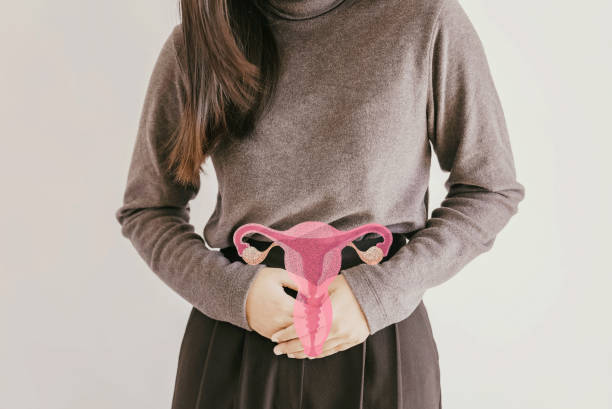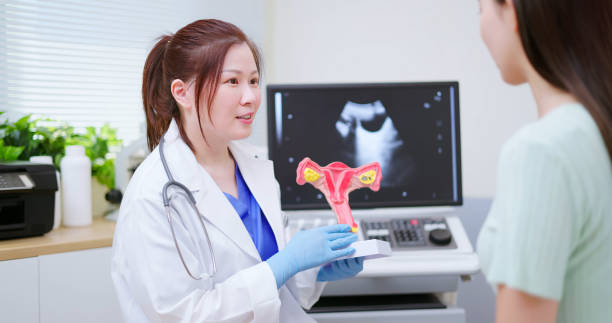Polycystic Ovary Syndrome (PCOS) and Endometriosis are two common yet often misunderstood conditions affecting women’s reproductive health. While both can cause severe discomfort and impact fertility, they have different causes, symptoms, and treatment approaches. Understanding these conditions is key to early diagnosis and effective management. This article explores the symptoms, treatments, and lifestyle modifications that can help women manage PCOS and Endometriosis.
Understanding PCOS and Endometriosis
What is PCOS?
PCOS is a hormonal disorder that affects women of reproductive age. It is characterized by excess androgen (male hormone) levels, irregular menstrual cycles, and the presence of multiple small cysts on the ovaries. Insulin resistance is a major contributing factor, often leading to weight gain and metabolic complications.
What is Endometriosis?
Endometriosis occurs when tissue similar to the uterine lining grows outside the uterus, leading to inflammation, pain, and the formation of scar tissue. Unlike PCOS, endometriosis is primarily associated with chronic pelvic pain and fertility challenges.

Symptoms: How to Identify the Conditions
PCOS Symptoms:
- Irregular or missed periods
- Excessive hair growth (hirsutism), especially on the face and body
- Acne and oily skin
- Weight gain, particularly around the abdomen
- Thinning hair or hair loss
- Difficulty conceiving
Endometriosis Symptoms:
- Severe pelvic pain, especially during menstruation
- Heavy or irregular menstrual bleeding
- Pain during or after intercourse
- Digestive issues such as bloating, diarrhea, or constipation
- Fatigue and lower back pain
- Infertility concerns
Causes and Risk Factors

While the exact causes of PCOS and Endometriosis remain unclear, several risk factors contribute to their development:
- PCOS: Genetic predisposition, insulin resistance, and hormonal imbalances.
- Endometriosis: Family history, immune system dysfunction, and retrograde menstruation (when menstrual blood flows backward into the pelvic cavity).
- Common Risk Factors: Chronic stress, poor diet, exposure to endocrine disruptors, and obesity.
Diagnosis: How Are These Conditions Identified?
Doctors diagnose PCOS and Endometriosis through a combination of medical history, physical exams, and imaging tests:
- PCOS Diagnosis: Blood tests to check hormone levels, ultrasound to detect ovarian cysts, and insulin resistance evaluation.
- Endometriosis Diagnosis: Pelvic exams, ultrasound, MRI, and in some cases, laparoscopy (a minor surgical procedure to examine pelvic organs).
click here to know more about experts advice
Treatment Options

Medical Treatments
- PCOS Treatment:
- Consult your doctor!
- Endometriosis Treatment:
- Consult your doctor!
Lifestyle and Natural Remedies

Dietary Changes:
- PCOS: Low-carb, high-protein diet to balance blood sugar and reduce insulin resistance. Avoid processed foods and refined sugars. Include Detox Drinks: Boost Your Health Naturally.
- Endometriosis: Anti-inflammatory diet rich in omega-3 fatty acids (salmon, flaxseeds), whole grains, and leafy greens. Avoid red meat and dairy, which may trigger inflammation.

Exercise & Weight Management:
- Regular physical activity such as strength training and yoga can help balance hormones and reduce symptoms. Click to know about the 10 Yoga Poses for Beginners
- Light cardio (walking, cycling) helps improve metabolism and manage weight.
Stress Management & Mental Health:
- Meditation, deep breathing, and mindfulness techniques to reduce cortisol levels.
- Prioritizing quality sleep and relaxation.
- Seeking support from therapy or online communities.
When to See a Doctor
Women experiencing severe symptoms, chronic pain, or difficulties in conceiving should consult a healthcare professional. Early diagnosis and proper management can significantly improve quality of life and reproductive health.
Stay Healthy!
PCOS and Endometriosis require a holistic approach to treatment, combining medical intervention with lifestyle adjustments. Awareness, self-care, and medical guidance can help women navigate these conditions effectively. By adopting a healthier lifestyle and seeking appropriate medical care, women can lead fulfilling lives despite these challenges.
Read More | The Best Morning Routine For Productivity and Balance!
Read More | Feminine Wellness: Essential Mental Health Tips




